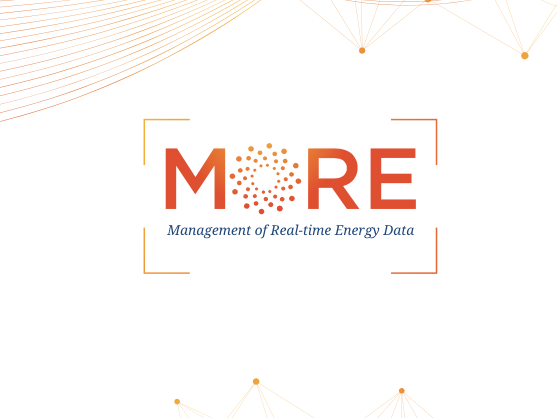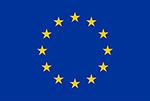
MORE | Management of Real-time Energy Data - MORE IMLA Colloquium series Dec 2022 - Health monitoring challenges in Renewable Energy Sources (RES) sector
Format: Online, Zoom
Date and Time: December 19th, 2022, 2:00 PM - 3:45 PM GMT
Duration: 2.5 hours
MORE | Management of Real-time Energy Data - About the event
You are cordially invited to the bi-annual IBM-Athena colloquium series on the industry challenges due to the exponential growth of time-series data. The colloquium series strives to cover the novel challenges arising from high frequency and/or high volume time series data in various sectors like RES, water, inventory management etc.
The second colloquium aims to understand the challenges in the health monitoring of RES installations. The colloquium will cover topics like soiling in solar panels, yaw misalignments in wind turbines and general machine learning tools available to address the challenges using time series data.
The online event takes place between 2:00 PM - 3:45 PM Dublin time on December 19th, 2022. Speakers and panellists are international industry and academic experts that would provide a holistic viewpoint on the future of computing in the RES sector.
Participation is free and open to all, but you need to register here:
RegisterMORE | Management of Real-time Energy Data - Agenda for the colloquium is as below:
| Speaker | Title | Time | Duration |
|---|---|---|---|
Seshu Tirupathi |
MC to open |
2:00 PM - 2:05 PM | 5 minutes |
Dr. Giorgos Giannopoulos |
Soiling detection in PV parks |
2:05 PM - 2:35 PM | 30 minutes |
Dr. Dhaval Patel |
Anomaly detection on timeseries data for Industry 4.0 applications |
2:35 PM - 3:05 PM | 30 minutes |
Manolis Terrovitis, Dhaval Salwala, Nikos Raftopoulos |
Challenges in applying AI techniques to energy data (panel discussion) | 3:05 PM - 3:45 PM | 40 minutes |
MORE | Management of Real-time Energy Data - Abstract
Soiling detection in PV parks
Solar panels are prone to gradually gathering soil, which leads to reduced performance. Soiling comprises a usually very slow and gradual phenomenon, thus making it difficult to detect. We study the problem of estimating the soiling ratio in photovoltaic (PV) modules, i.e., the ratio of the real power output to the power output that would be produced if solar panels were clean. A key advantage of our algorithms is that they estimate soiling without needing to train on labelled data, i.e., periods of explicitly monitoring the soiling in each park, and without relying on generic analytical formulas which do not take into account the peculiarities of each installation.
Anomaly detection on timeseries data for Industry 4.0 applications
Machine Learning pipeline (MLPipe) has become an interesting artefact in data-driven research and the industrial community. MLPipe orchestrates the steps that need to be performed on incoming data while conducting model training and scoring. MLPipes are defined for various machine learning tasks such as classification, regression, imputation, clustering, outlier detection, etc. MLPipes are also defined for various data modality such as iid, time series, images, test, etc. This talk introduces an API design for time series data covering univariate and multi-variate data. The API is accessible for usage at https://developer.ibm.com/apis/catalog/ai4industry--anomaly-detection-product/api/API--ai4industry--anomaly-detection-api/#connection_check
MORE | Management of Real-time Energy Data - About the speakers
Dr. Dhaval Patel
Dr Dhaval Patel has been with IBM Research since 2016 and currently works as a Senior Technical Staff Member (STSM). Dr Dhaval Patel holds PhD in Computer Science from the National University of Singapore. Dr Patel is an expert in Data Mining, Machine Learning, Time Series Data Analysis, etc. The significance of his research contributions has been demonstrated in 70+ published papers (10 journal papers and 60+ conference/workshop papers) in high-impact, refereed, top-notch venues. He is the recipient of 9 outstanding technical/research accomplishments awards from IBM for advancing AI technology to solve several real-world industrial problems. He is a key contributor to many Flagship IBM Research Product including AutoAI-TS, Maximo Application Suites for Anomaly Detection at Scale, etc.
Dr. Giorgos Giannopoulos
Dr Giorgos Giannopoulos received his Diploma in Electrical and Computer Engineering from the National Technical University of Athens (NTUA), Greece, in 2006 and his PhD in Computer Science from NTUA in 2013. He is currently a Scientific Associate at IMSI of Athena Research and Innovation Center. His current research interests focus on the adaptation and extension of Machine/Deep Learning methods in various disciplines, including pattern recognition on RES time-series; next day-level prediction of forest fires; explainability of recommender systems; explanation and prediction of Solar events; disease diagnosis based on medical images; integration and annotation of spatio-textual data; and fact-checking. He has published more than 40 papers and contributed to developing open-source tools in the above areas. Google Scholar Citations reports more than 1500 citations to his work and h-index 13.
Dhaval Salwala
Dhaval Salwala is a Research Engineer at IBM Research Europe – Ireland. Currently, he is working on an H2020 project - MORE on the Renewable Energy Sources (RES) sector. He is working on time series forecasting and incremental machine learning. Previously, Dhaval worked in Multimedia Complex Event Processing in the Smart Cities and Sustainable IT group at the Insight Centre for Data Analytics at NUI Galway. He owns a Master’s degree in Data Science from NUI Galway. Earlier, he was at Tata Consultancy Services, where he worked as a Senior Software Developer. Dhaval has 7+ years of diversified industry experience. He has led projects on developing ML solutions for multi-modal analytics using Computer Vision, Knowledge Graphs and Neuro Symbolic AI.
Nikos Raftopoulos
Nikos Raftopoulos is the I.T. & Telecommunications Director at IPTO SA. In September of 2018, he joined IPTO S.A. (ΑΔΜΗΕ) as Director of I.T. & Telecommunications department, managing 3 branches (Telecommunications & Cybersecurity, Software Systems, Infrastructure & User Support). He was appointed CISO in 2019 and formed Cybersecurity Strategy based on zero trust architecture, and established the organization’s SOC for both I.T. and O.T. systems. The department supports enterprise I.T. systems (ERP, Asset Management systems, HRMS, Document Management etc.), challenging electricity market systems (Target Model, Cross Border Management System, Market Settlement, Energy Metering Systems etc.) and has established an innovative Data Analytics Ecosystem (Digital Channels, Energy Data Dashboard, Open Data Project etc.).
13 Dec 2022
